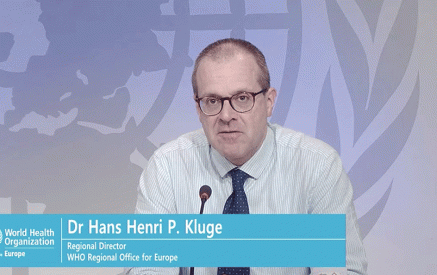Two PACE rapporteurs have called on national policy-makers and international institutions to “act in a concerted manner now in order to beat both the virus and the crisis”, urging a strong political response which stabilises economies while protecting the vulnerable.
In a joint statement, Georgios Katrougkalos (Greece, UEL), rapporteur on the OECD, and Selin Sayek Böke (Turkey, SOC), rapporteur on socio-economic inequalities, said: “The global spread of the coronavirus has prompted extraordinary measures to contain the epidemic. As national policy-makers struggle to alleviate the health crisis, they must also improve healthcare systems, achieve an inclusive, swift economic recovery, boost sustainable development and protect socio-economic rights.”
They added: “The OECD is making valuable data and analysis available to governments – who should pay close heed to that evidence as they formulate their policy responses. Action will avoid larger save costs over time. To achieve the best results, tax and fiscal policies need to support better our priority action in areas such as healthcare, trade, social and labour market policies.”
The rapporteurs identified as priority recommendations:
Read also
– enhanced welfare payments and income support (on a temporary basis) to all workers, with an emphasis on lower income households and independent and precarious workers;
– expand coverage and duration of social safety nets such as unemployment insurance benefit schemes;
tax relief for workers in health and other emergency-related sectors;
– lowering of taxes on essential consumer goods and services;
suspending employer and self-employed social security contributions, payroll-related taxes, and, where relevant, selected taxes on essential (life-saving) imported items;
– implementation of ambitious stimulus programmes, with greater support for small and medium enterprises and green investment;
better use of rapid response mechanisms and policies that automatically adjust tax rates and transfer payments to stabilise incomes, consumption, and business spending over the business cycle (automatic stabilisers);
– promotion of policies, rules and support mechanisms for teleworking.
“We call on parliaments and governments of member States, as well as social partners and other civil society players, to implement or take into account the OECD evidence and analysis in order to cushion the worst effects of this crisis, notably for more vulnerable people, and pave the way to a smooth and inclusive recovery,” the rapporteurs concluded.
PACE





























































